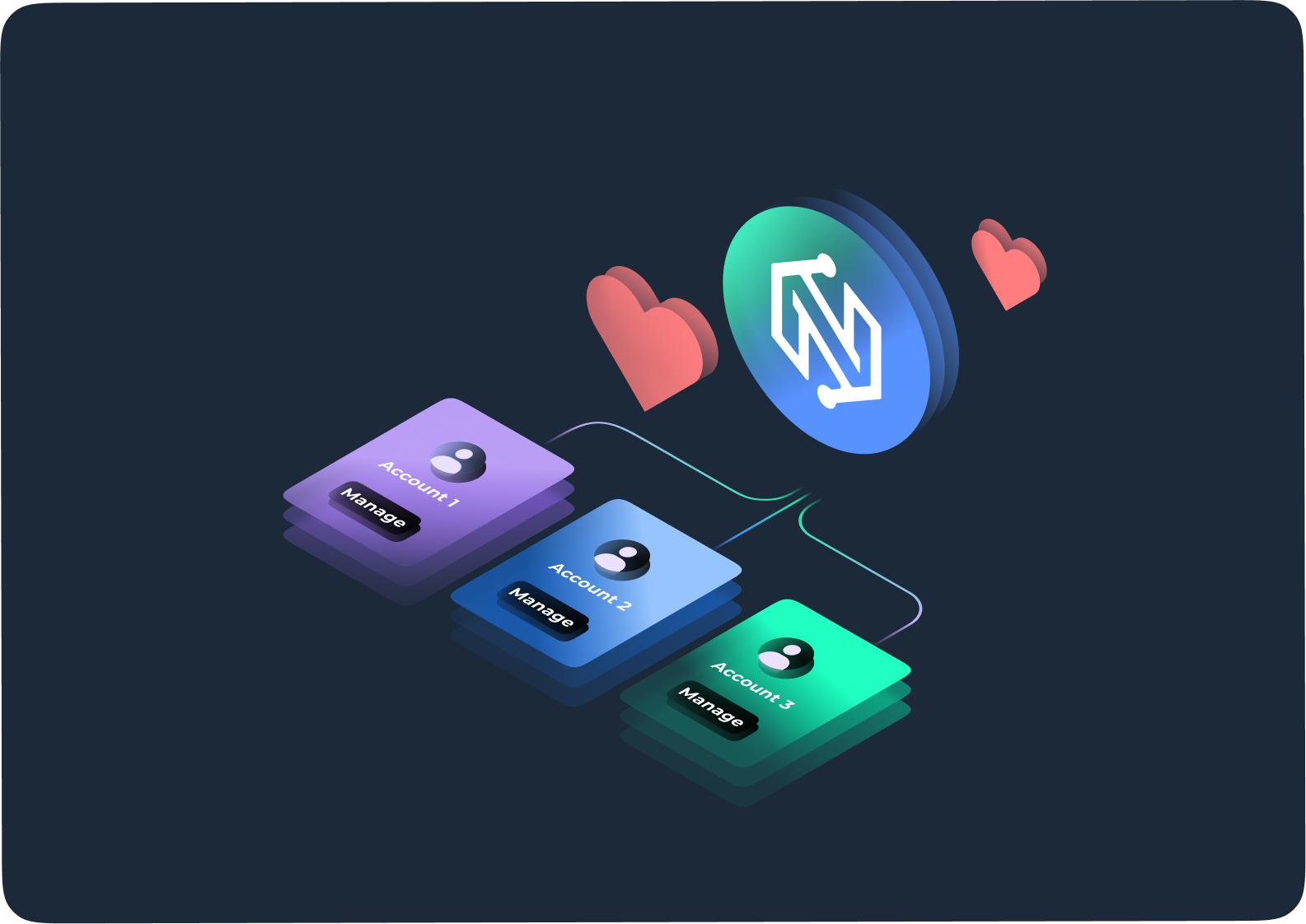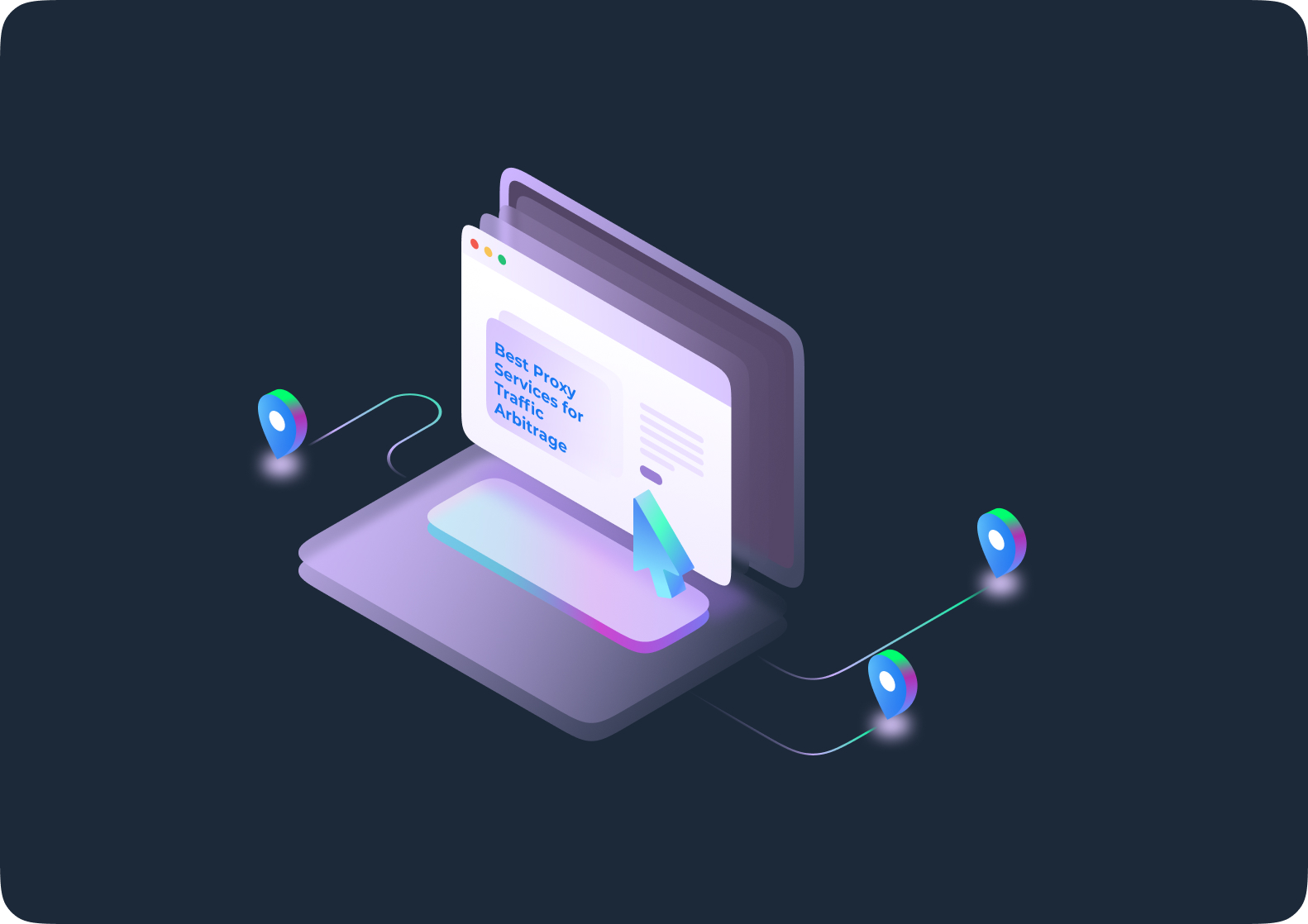Choosing between mobile, residential and datacenter proxy types can get confusing and overwhelming.
In this article, we’ll make it simple, comparing residential, datacenter, and mobile proxies so you can pick the right one for your use case.
What Are Residential Proxies?
Residential proxies are IP addresses assigned by internet service providers (ISPs) to real people in real homes.
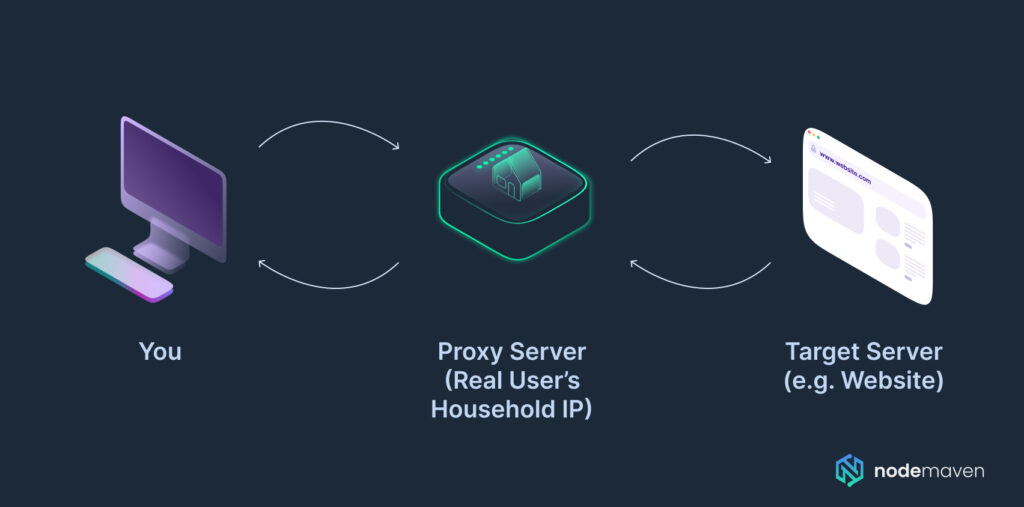
In other words, when you use a residential proxy, websites see you as just another regular user browsing from a home Wi-Fi connection, not a bot, data scraper, or automation tool.
Unlike datacenter IPs that come from cloud servers, residential proxies come from real devices and real internet connections. That makes them far more trustworthy in the eyes of websites and way less likely to get blocked. Some tools even allow you to manage a cloud phone from desktop using a residential proxy, making it easier to operate mobile apps securely from your computer.
What Are Residential Proxies Good For?
Because they look like ordinary users, residential proxies are perfect for:
- Web scraping without getting blocked.
- Managing multiple business accounts on platforms like Instagram, Facebook, or e-commerce sites
- Testing ads or search results in different cities or countries
- Reducing CAPTCHAs and other anti-bot interruptions
- Tracking token prices across exchanges
To get the best out of the residential proxies, choose only high-quality ones.
At NodeMaven, we don’t just offer residential IPs, we pre-filter them with our proprietary IP Quality Filter. That means you only get clean, reliable, and high-trust IPs.
Note: Want to understand residential proxies even better? Check out our complete guide to residential proxies for everything you need to know.
What Are Datacenter Proxies?
Datacenter proxies are IP addresses that come from cloud hosting providers, not from real ISPs or devices in people’s homes.
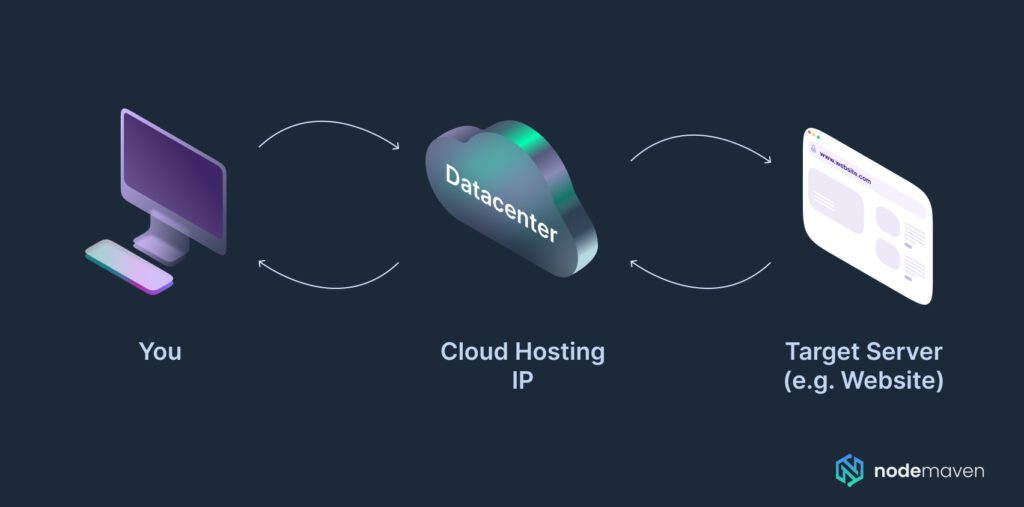
Think of them like virtual identities created in data centres, not tied to any specific location or human user.
They’re affordable, and easy to scale, which is why they’re commonly used for bulk tasks like mass data scraping or bot-driven operations, but they have certain limitations we mention later.
Why Use Datacenter Proxies?
Datacenter proxies can be a great choice when:
- You need a high-speed and cheap tool for collecting large volumes of data
- Your project is not sensitive to detection (e.g. testing or scraping non-restricted pages)
- You’re on a tight budget and need lots of IPs fast
Disadvantages of Datacenter Proxies to Know
The biggest downside is that these IPs are overused, easily detected and flagged by websites. Because they don’t come from real devices or ISPs, they often trigger CAPTCHAs, bans, or verification checks, especially on platforms that prevent automation.
That’s why datacenter proxies aren’t ideal for:
- Social media
- E-commerce logins
- Ad verification or fraud-sensitive use cases
Tip: If you need speed and scale over stealth, datacenter proxies can work. But for anything that needs to look “human,” residential or mobile is usually the better bet.
What Are Mobile Proxies?
A mobile proxy is an IP address that comes from a real mobile device connected to a 4G, 5G, or LTE network, just like your own phone.
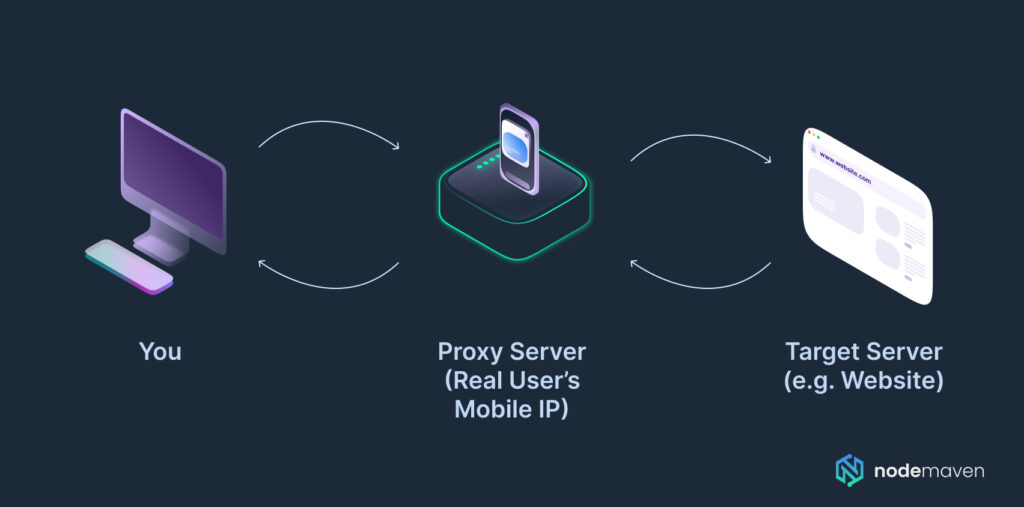
These IPs are assigned by mobile carriers (for example, AT&T, Vodafone, T-Mobile), making them appear extremely trustworthy to websites.
Because mobile carriers rotate IPs between many users, a mobile IP might be shared by hundreds of people in real life. That makes websites like Instagram, Facebook, and TikTok much less likely to block it, even if you’re automating or scraping.
Why Do Businesses Use Mobile Proxies?
If you’re comparing mobile proxy vs residential proxy, here’s where mobile stands out:
- Super high trust scores. Ideal for social platforms that block datacenter or even residential IPs.
- Low ban risk. Because mobile IPs mimic real user behavior, they’re harder to detect.
- Best for ads & social. Perfect for ad verification, affiliate marketing, and social automation.
How Are They Different from Datacenter and Residential Proxies?
Let’s break it down:
- Compared to datacenter proxies, mobile proxies are more expensive but much safer.
- Compared to residential proxies, mobile is even harder to detect, especially for social platforms.
- While residential proxies are great for scraping and general automation, mobile proxies are best when stealth is critical.
All of NodeMaven’s mobile proxies are real-device IPs backed by our IP Quality Filter, so you’re not just getting any random mobile IP, you’re getting one that’s been pre-checked for performance, trust, and speed.
Residential vs Datacenter vs Mobile: A Side-by-Side Comparison
So, which proxy should you choose? Residential, datacenter, or mobile?
The answer depends on what you’re trying to do and how important stealth, speed, or budget is for your task and work.
Let’s break it down in a side-by-side table:
| Feature | Residential Proxies | Datacenter Proxies | Mobile Proxies |
| IP Source | Real households (ISPs) | Cloud servers (not tied to real users) | Real mobile devices on 3G/4G/5G networks |
| Trust/Detection | Medium to high — good for most tasks | Low — flagged easily, especially by sensitive platforms | Very high — shared by real users, nearly undetectable |
| Speed | Fast, but varies slightly based on region | Very fast — ideal for bulk requests | Moderate — slightly slower due to mobile networks |
| Session Stability | Supports sticky sessions up to 24h with NodeMaven | Often static IPs, less flexible for rotation | Sticky & rotating options, depends on carrier availability |
| Geo-Targeting | Country, city, even ISP-level targeting with NodeMaven | Usually limited to country-level targeting | Country, city, and even carrier-level targeting |
| Use Cases | Web scraping, multi-accounting, ad testing, e-commerce ops | Bulk scraping, price tracking, low-risk automation | Social media automation, ad verification, affiliate marketing |
| Cost | Medium | Low — often the cheapest | High — but worth it for sensitive or high-value operations |
- Choose datacenter proxies if you need something cheap and fast for non-sensitive scraping.
- Go for residential proxies if you want balanced performance, geo-targeting, and fewer blocks.
- Use mobile proxies when you’re dealing with social platforms or ad networks that hate automation.
This is where the debate around “mobile proxy vs residential proxy” or “residential vs datacenter proxies“ really comes down to: what level of privacy, stability, and targeting do you need.
Residential vs Mobile vs Datacenter for Your Business Needs
Not sure whether to go with residential, mobile, or datacenter proxies?
Let’s look at some use cases to help you figure out what best suits you or your team.
E-commerce & Account Management
If you’re managing multiple user accounts or working with online stores, session stability and trustworthiness matter.
Residential proxies are best here. These IPs come from real users, which makes your activity look natural and reduces the risk of bans or CAPTCHAs.
Social Media Automation
Platforms like Instagram, TikTok, and Facebook have strict bot detection systems.
In this case, mobile proxies are often more effective than residential proxies. Since many users share mobile IPs, they’re harder to detect and block, making them ideal for social media.
Market Research and Data Collection
If you’re collecting data from different websites or analyzing competitors, speed and access are key.
Datacenter proxies are great for large-scale scraping at a lower cost, especially if you’re targeting non-sensitive sites.
But if you need to avoid detection, residential proxies offer better reliability and lower block rates. This is the main difference between data center and residential proxies, datacenter IPs are fast but more likely to be flagged, while residential IPs are trusted.
Digital Advertising and Localized Testing
When you’re checking how ads appear in specific cities or testing region-specific content, geo-targeting is essential.
Mobile and residential proxies both suit best for precise location targeting, down to city and even ISP level.
If you’re comparing mobile proxy vs residential proxy for geo-targeted tasks, residential is more stable, but mobile may offer higher trust on platforms.
Final Summary
- Use residential proxies for trust, stability, and tasks involving user accounts or sensitive platforms.
- Choose mobile proxies when you need the highest level of undetectability and access to mobile-only services.
- Go with datacenter proxies when speed and volume matter more than stealth.
If you’re still weighing datacenter proxies vs residential, or wondering which is better in the mobile proxy vs residential proxy debate, the answer lies in your specific use case.
Every business has different use cases, budgets and goals. NodeMaven lets you combine mobile and residential proxies in one plan, so you don’t have to choose just one.
Why NodeMaven Combines Residential and Mobile Proxies in One Plan
At NodeMaven, we believe that flexibility shouldn’t cost you extra, especially when your business depends on it.
That’s why we offer residential and mobile proxies in one plan.
No upsells. No switching fees. Just the freedom to use the right proxy type for each task, whether you’re scraping product data, running social ads, or managing multiple accounts across platforms.
One Plan, Dual Power
With most providers, you have to choose between mobile or residential, and often pay separately for both.
But at NodeMaven, your access includes:
- Clean residential IPs backed by our proprietary IP Quality Filter
- High-trust mobile IPs from real carrier networks
- Super Sticky Sessions that let you keep the same IP for up to 24 hours
- Precision geo-targeting, down to city, carrier, and ISP
- Smart onboarding tool that auto-configures the best settings for your use case
Whether you’re comparing mobile proxy vs residential proxy for account creation or weighing datacenter proxies vs residential for scraping tasks, our blended plan gives you the tools to do both with no compromises.
We Built the Tool for Modern Business
- Need to rotate proxies for a scraping operation? Use our residential pool.
- Trying to avoid bans on social platforms? Switch to mobile.
- Testing ads in multiple cities? Target by location or carrier in just a few clicks.
This is what makes NodeMaven different: our premium proxy infrastructure is designed for scale, flexibility, and real business outcomes.
Final Thoughts: Choosing the Right Proxy Type
When it comes to residential proxies vs VPNs, or deciding between mobile proxies, residential proxies, and datacenter proxies, there’s no one-size-fits-all answer.
Each proxy type has its strengths, and the best choice depends on your goals and workflow.
Let’s do a quick recap:
- Residential proxies give you access to real-user IPs with high trust scores. Perfect for account management, geo-targeted data collection, and ad testing.
- Mobile proxies are ideal for avoiding bans on strict platforms like Instagram, TikTok, or Facebook. Their rotating carrier IPs make them harder to detect.
- Datacenter proxies offer high speed and lower costs and are good for bulk scraping or tasks where stealth isn’t critical.
If your work involves automation, scraping, running multiple accounts, or localized ad testing, you’ll likely need a combination of proxy types. That’s why NodeMaven gives you flexible access to both residential and mobile proxies under one plan.
Whether you’re comparing mobile proxy vs residential proxy, or researching the difference between datacenter and residential proxies, the key is choosing a proxy solution that fits your use cases and workflow.
Ready to Get Started?
NodeMaven’s all-in-one proxy plans are built for scale, performance, and privacy, with clean IPs, advanced session control, and easy geo-targeting.
Start your trial for 3.50$, or explore our monthly and pay-as-you-go pricing to choose the best match for you and your business.

